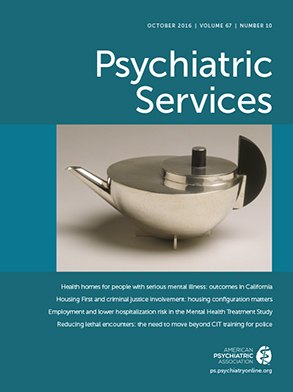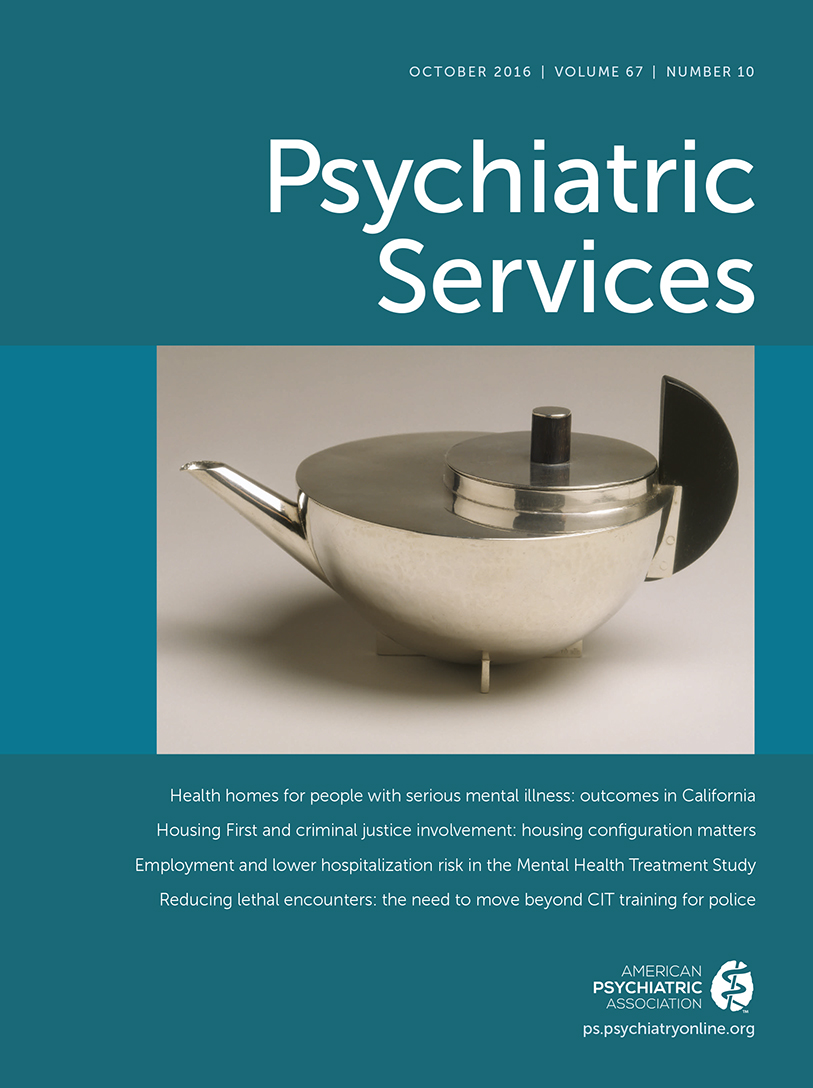Behavioral health clinicians have long recognized the importance of work in the lives of patients. Indeed, most of us spend more time at work than anywhere else except, perhaps, asleep. Behavioral health conditions can have an enormous impact on functioning in all aspects of life. And there is a reciprocal relationship between mental illness and work: symptoms impair work functioning, and poor work functioning hampers recovery. Effective treatment strategies will have implications for individuals with behavioral health conditions, their families, the health care system, employers, and society as a whole. However, our systems of care are not aligned to improve functioning for individuals.
In this issue, a study by Luciano and colleagues based on the Social Security Administration’s Mental Health Treatment Study (MHTS) makes clear that for unemployed individuals with severe mental illness, it is difficult if not impossible to return to full-time employment and the sense of normalcy and financial independence that it brings. Nonetheless, MHTS, a costly intensive intervention, is one example of what needs to done: supplying coordinated, integrated, evidence-based mental health and vocational services benefits. Even people working very part-time (9.5 hours per week) and at very low wages ($9.71 per hour), who represented half of the sample in the reported secondary analysis, decreased rehospitalization and use of other health services and improved on some health outcome measures and in quality of life. Although the social inclusion objectives of the intervention were realized, MHTS also demonstrated that these approaches cannot be counted on to reduce the SSI and SSDI rolls.
Unemployed individuals with severe mental illness are the tip of the iceberg of an estimated 23 million working-age Americans who suffer with chronic general medical and mental health problems that affect their ability to work. This number and the associated economic impact are projected to rise dramatically in the coming decades. An evolving literature has documented the degree to which behavioral health problems impair work functioning and has demonstrated that symptom reduction alone does not improve either job performance or job satisfaction. Evidence from research in the mental health, disability and rehabilitation, and occupational medicine fields converges to indicate that employment problems persist, requiring mobilization of scarce resources beyond symptom treatment to provide whatever it takes to improve functioning.
In an Open Forum by Drake and colleagues addressing implications of the MHTS, the authors’ final recommendation is that financing strategies should focus on functional rather than clinical outcomes. Given our current political situation and without a national policy, the United States lags far behind Europe in addressing this crisis. It is time to ask what societal commitments would be necessary if we cared whether individuals with mental health problems fully participate in the labor market. Addressing this much larger problem requires approaches that differ from those targeted toward people with severe mental illness. It has fallen to research groups working with particular patient groups (for example, veterans or working Americans with depression) to test new care models that could enable these persons to achieve improved work functioning. Even though research continues to be needed to test new care models, we have learned how to begin: the use of evidence-based approaches from many fields, multidisciplinary teams, coordination of care, and early intervention. My colleagues and I have demonstrated in our work with employed individuals with depressive disorders that short-term interventions combining care coordination, CBT strategies, and job counseling significantly improve both work functioning and satisfaction.
It is clear that our society has not done enough to ensure that individuals with behavioral health problems have access to the resources that can enable their full participation in the labor market. It is time to address the needs of both the unemployed and the employed throughout the range of behavioral health problems. Approaches will differ for different groups of individuals. Although intervention is needed at all levels, the MHTS and our work demonstrate that meaningful change will require new partnerships with employers, difficult infrastructure and organizational changes, additional financial commitments, and new training for both providers and patients in these new approaches. The MHTS takes the optimistic view that these outcomes “exemplify societal goals for people with disabilities: recovery, social inclusion, and community integration.” Its findings tell us that it is time to move beyond rehabilitation to prevention. Although programs spanning disciplines and systems pose both logistical and financial strategies, we have the tools. The major question is, “If not now, when?”

